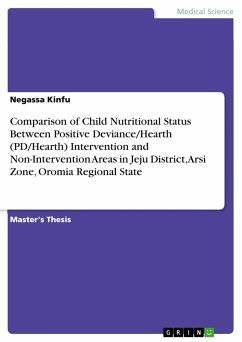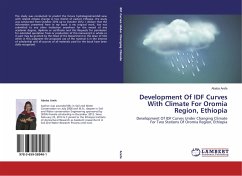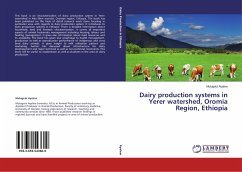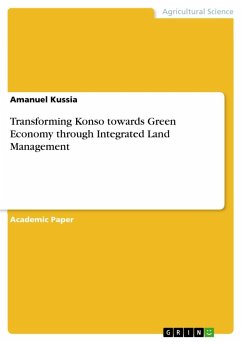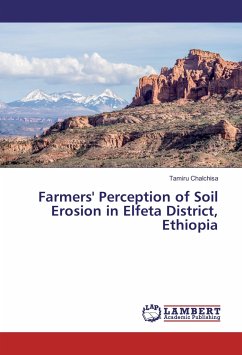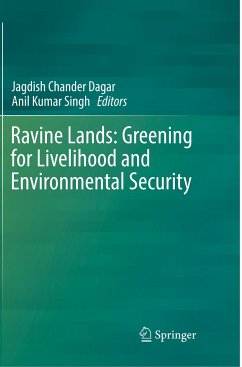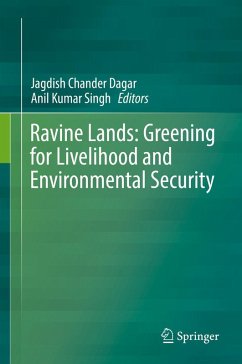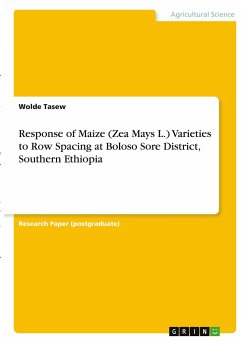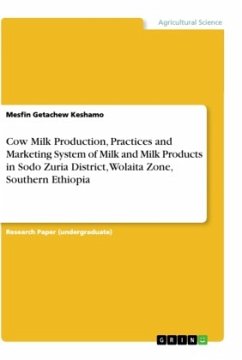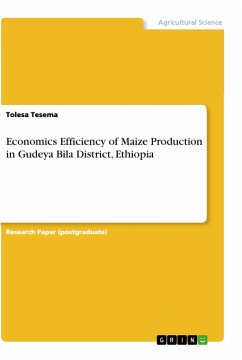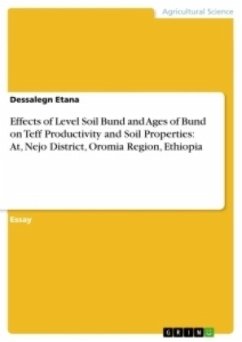
Effects of Level Soil Bund and Ages of Bund on Teff Productivity and Soil Properties: At, Nejo District, Oromia Region, Ethiopia

PAYBACK Punkte
0 °P sammeln!
Essay from the year 2020 in the subject Forestry / Forestry Economics, Wollega University (Wollega University Gimbi Campus, Forestry Department), language: English, abstract: Land degradation can be considered in terms of the loss of actual or potential productivity or utility as a result of natural or human factors; it is the decline in land quality or reduction in its productivity. It causes running down of soil organic matter and available water for crop growth. Consequently, implementation of soil and water conservation especially level soil bund is supposed to alleviate the impacts of soi...
Essay from the year 2020 in the subject Forestry / Forestry Economics, Wollega University (Wollega University Gimbi Campus, Forestry Department), language: English, abstract: Land degradation can be considered in terms of the loss of actual or potential productivity or utility as a result of natural or human factors; it is the decline in land quality or reduction in its productivity. It causes running down of soil organic matter and available water for crop growth. Consequently, implementation of soil and water conservation especially level soil bund is supposed to alleviate the impacts of soil erosion and increase agricultural land production and crop productivity. Based on that the effects of level soil bund was evaluated by conducting on-farm study during the cropping season of 2019 in Eba wakeyo kebele, Nejo District, Western Wollega of Oromia Regional State with the objective of evaluating level soil bund on teff productivity and soil properties. The study involves two factor: level soil bund (with and without) was a main plot and the ages of level soil bund was taken as the sub-plots. The treatment (T1=with bund of six year splited in to 7, T= with bund of 4 year splited in to 7, T3= with bund of 2 year splited in to 7and T4= without splited in to 7) with randomized complete block design. The data was analyzed using general linear model procedures and to separate difference between mean LSD (5%) was used. The level soil bund increased the mean value of soil moisture contents at 0-30 cm and 0-60 cm soil depth, the teff (Eragrostis tef) grain yield increased by 22.85% when compared with controlled block and the teff biomass increased by 24.32%. As the wall, it is concluded that level soil bund improves soil fertility, soil moisture status and teff (Eragrostis tef) grain yield and yield components.




